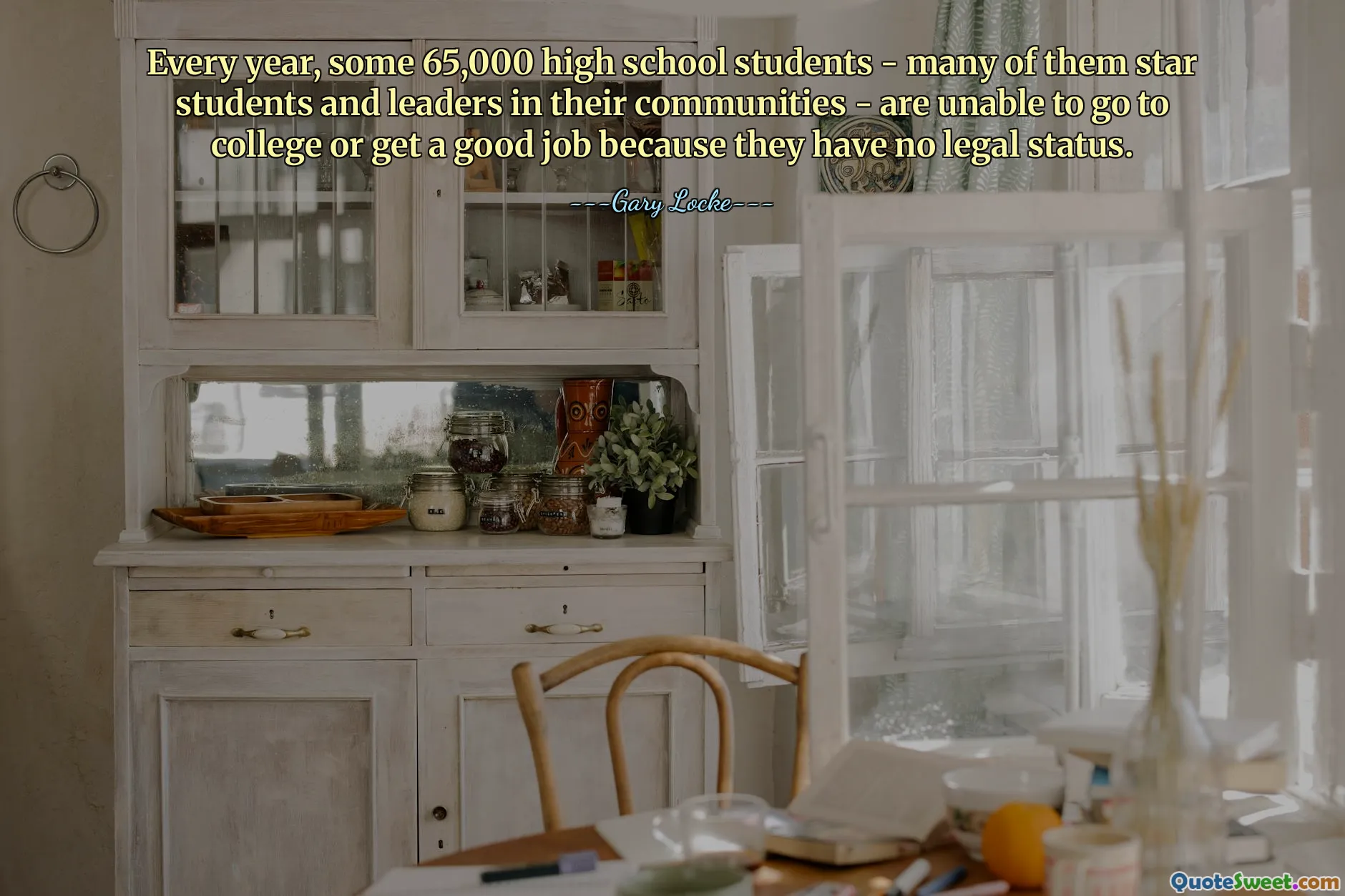
Every year, some 65,000 high school students - many of them star students and leaders in their communities - are unable to go to college or get a good job because they have no legal status.
This quote highlights a profound injustice faced by a significant number of talented and ambitious young individuals. Despite their academic achievements and community leadership, these students are held back by their legal status, which restricts access to higher education and employment opportunities. This situation reflects broader systemic issues related to immigration policies and social equity. When young people with the potential to contribute positively to society are denied opportunities solely based on their immigration status, it not only impacts their personal futures but also the collective progress of communities and economies. These students often face immense challenges, including limited access to scholarships, visas, and work permits, which could otherwise enable them to realize their full potential. Such barriers perpetuate cycles of hardship, marginalization, and inequality. It also raises ethical questions regarding fairness, opportunity, and the societal responsibility to nurture talent regardless of legal documentation. Addressing these issues requires comprehensive policy reform to create pathways for all qualified individuals to succeed and contribute meaningfully. Recognizing and dismantling these barriers can foster a more inclusive, innovative, and equitable society where talents are not wasted, and every young person’s aspirations can be achieved, regardless of their legal background.









